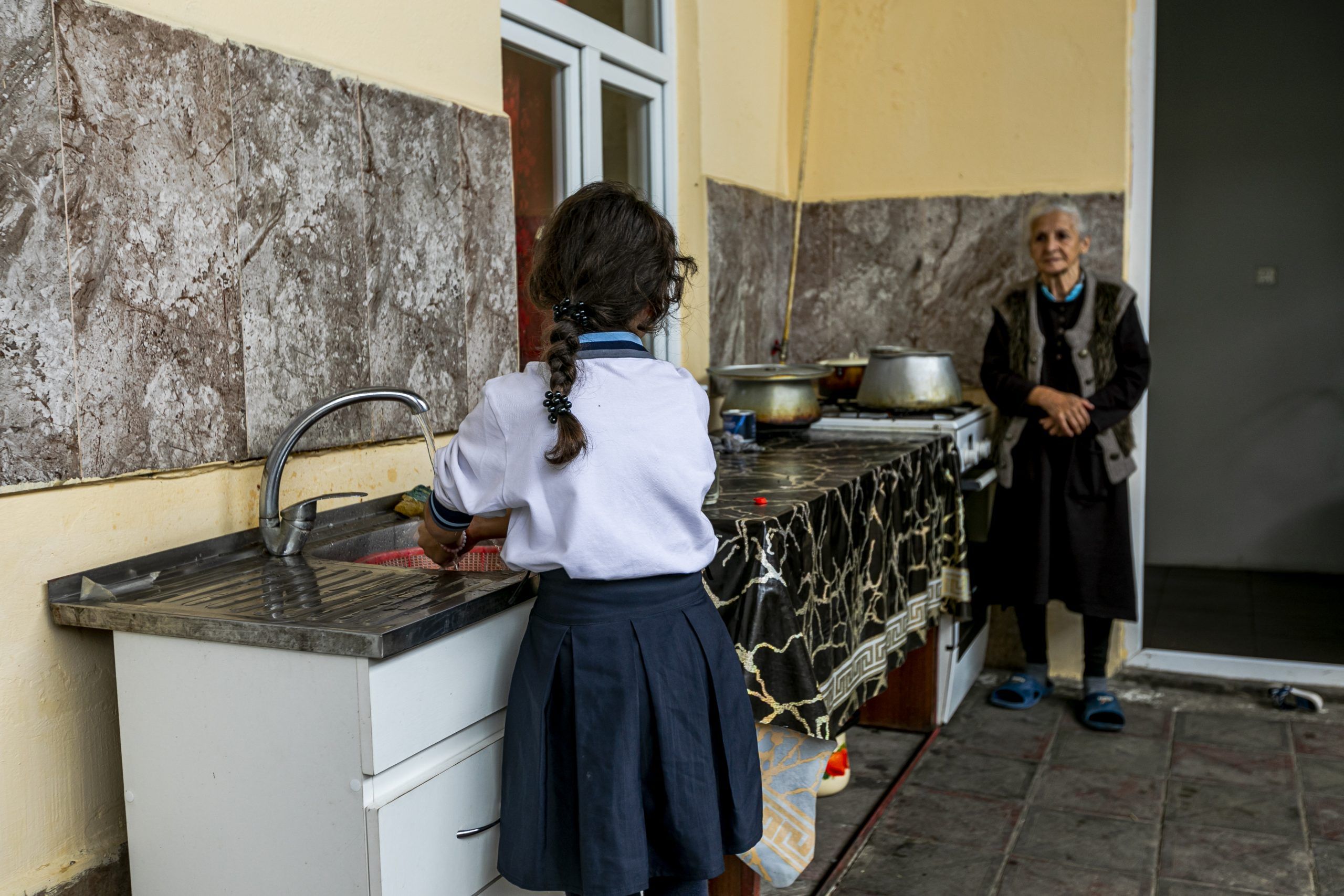
When renewable energy brightens up the lives of the most vulnerable
Azerbaijan is a country with high potential for renewable energy. However, the share of electricity generated from clean sources accounted for only 7% of the country’s total production in 2023, compared to a worldwide average of 30%. Raising awareness on the effects of the climate change and promoting clean energy among the population are not the least in achieving the energy transition. Pursuing these global objectives, the Ganja Euro-Atlantic Information Centre (GEAIC), a grassroots NGO from the city of Ganja in western Azerbaijan, acts locally, setting concrete examples for the community in the Ganja-Gazakh region. With EU support, it installed solar energy systems at two local social institutions, putting renewable energy at the service of women victims of violence and children with limited health opportunities.
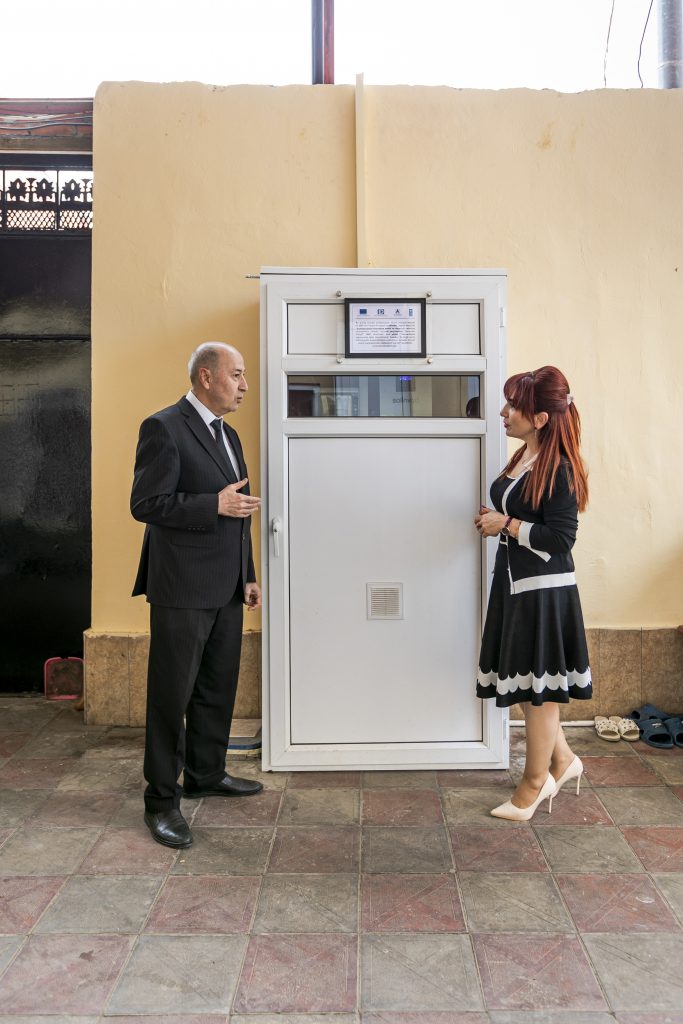
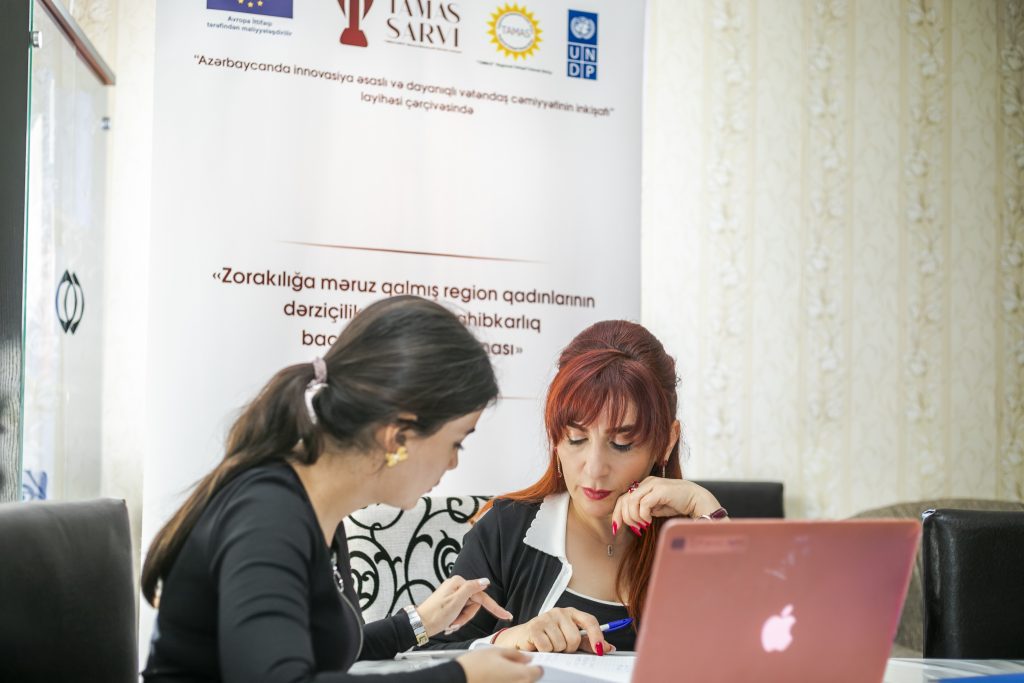
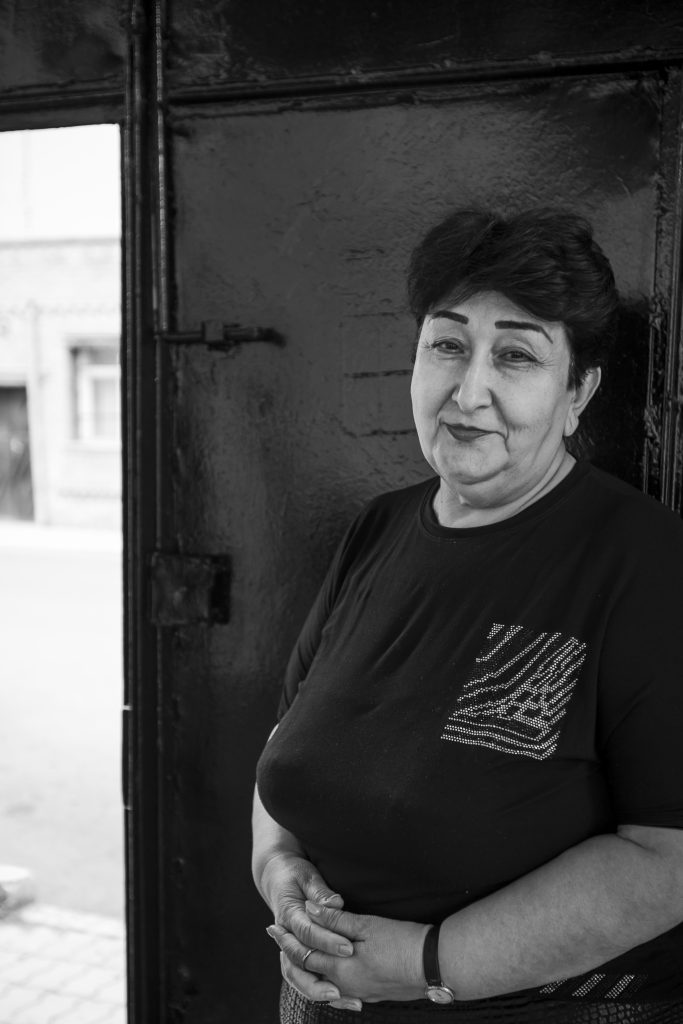
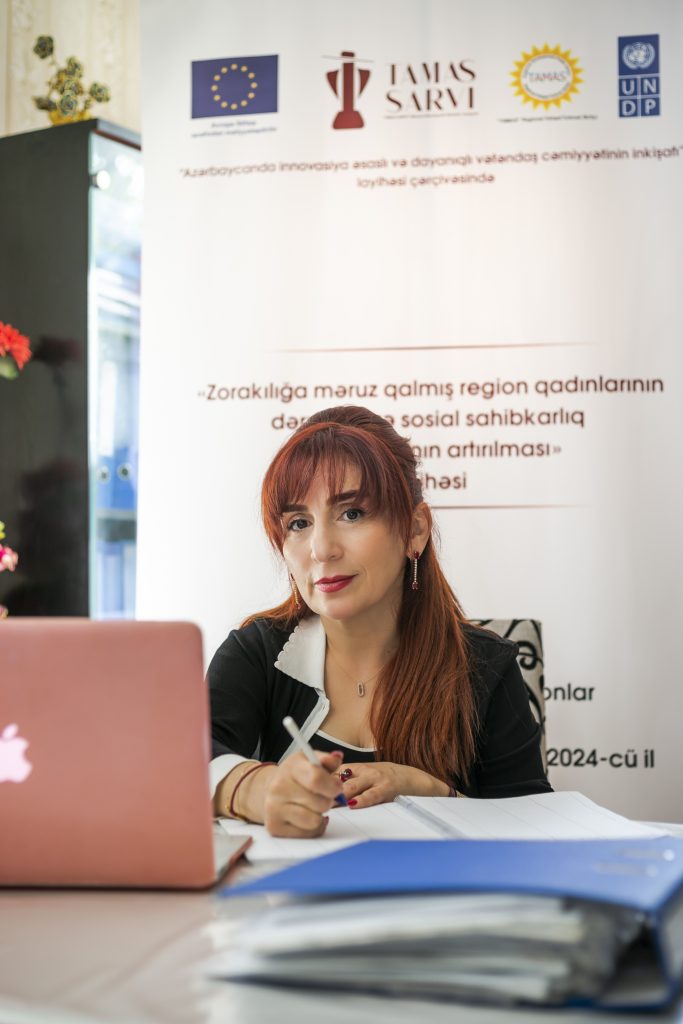
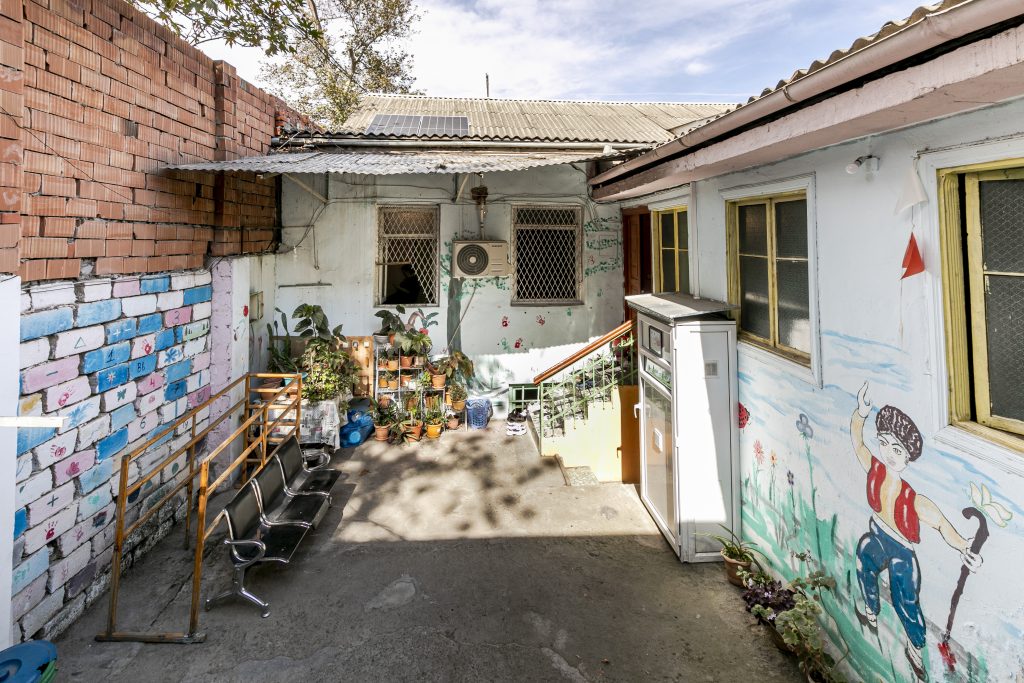
The shelter in Ganja is a temporary home for over 20 women who have faced abuse and violence in their families. It is their safe haven from fears and anxiety. Even if the shelter is not big – with three bedrooms, a living room, two kitchens and one bathroom – it guarantees its residents security and protection from the aggression and intimidations of their family members. Solmaz (not her real name) has been living in the shelter for the last seven months. For many years, she faced abuse from her husband. When he died, his relatives beat her severely, and eventually evicted the woman from the house. After living on the street for over a year, Solmaz knocked on the door of the shelter. “She was very stressed out and could hardly express herself verbally,” recalls Tamasha, the social worker. “Each of the other 20 women living here comes from a similar traumatic background.”
Kubra Alakbarova is the head of the NGO “Tamas” operating the shelter. Her organisation provides comprehensive assistance to women victims of domestic and gender-based violence: from accommodation and financial support, to legal advice and employment opportunities. The daily needs of the shelter – including electricity, gas and utility bills – represent for the NGO a persistent search for resources. Thus, the new collaboration with GEAIC, which was engaged in promotion of equal access to renewable energy to all, turned out extremely beneficial. “I first met Mehman Khalilov, Head of GEAIC, in 2018,” recalls Kubra. “He has always been devoted to the work of our shelter. Especially, from the moment when he happened to witness a distressed woman knocking on our door for immediate assistance. The GEAIC aspiration to sustain social facilities that serve vulnerable people led to the idea of installing solar panels at the shelter, deploying the concept of equal access to green energy to all.”
The installed system of 1.1 kW capacity fully covers the energy demand for lighting of the premises, saving 840 kWh annually. Nine months after, the benefits are tangible: less money for energy bills, reduced carbon footprint, equal to 870 kg of CO2 emissions prevented annually, as well as energy self-sufficiency during power outages. Mehman Khalilov recalls: “Once due to strong winds and torrential rains, there was a total blackout on the entire street, but the shelter remained illuminated – the single house in the neighbourhood! The neighbours curious about this fact came knocking on the shelter’s door to ask where the house was getting electricity from. Hearing about the solar panels, they got very surprised and interested, asking a lot of questions about their work and installation. Everyone was fascinated by the fact that solar energy can light a house. This is a practical example of how our initiative inadvertently promoted green energy in the community.”
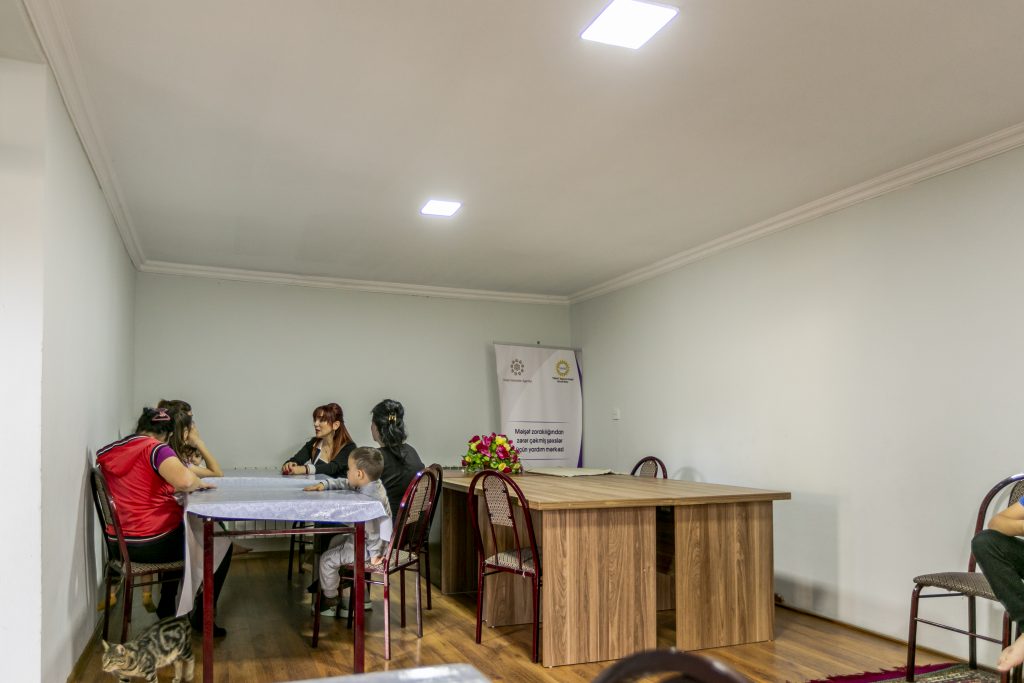
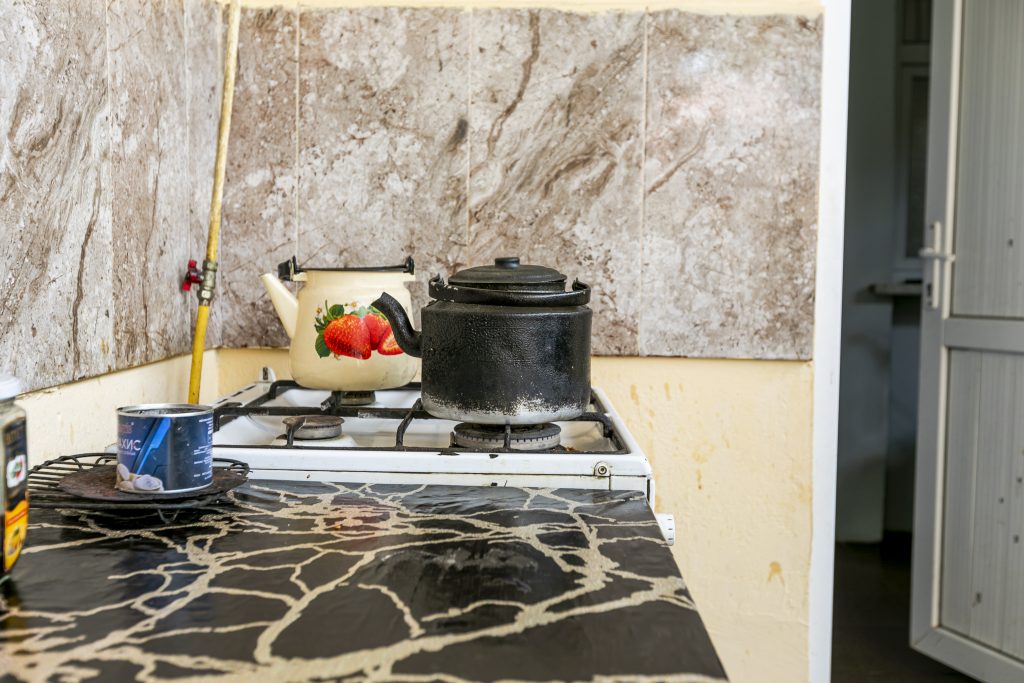
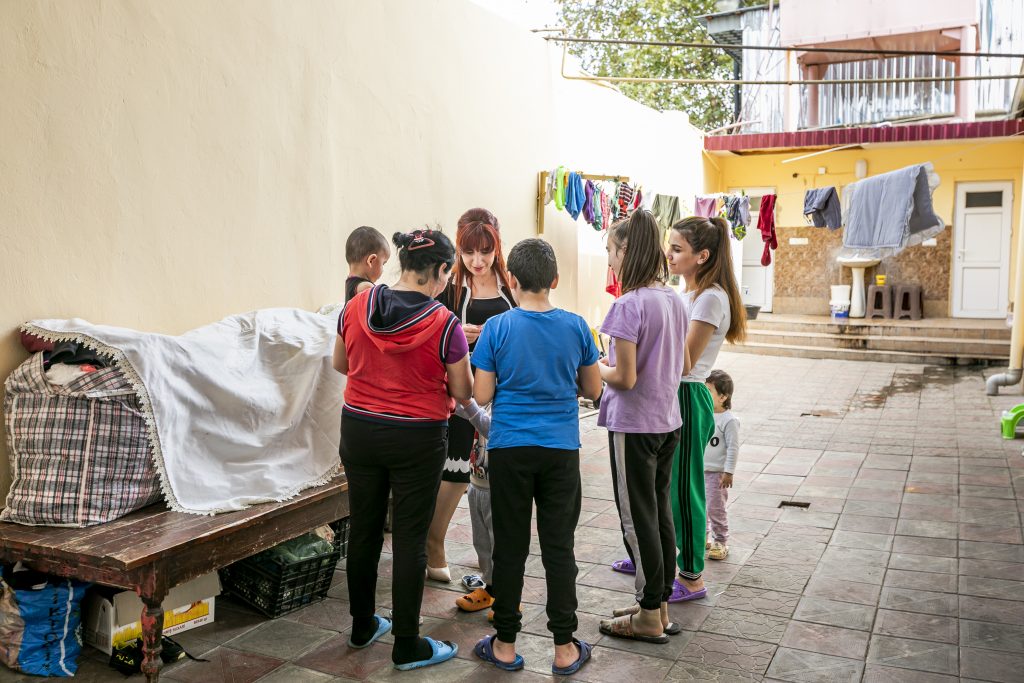
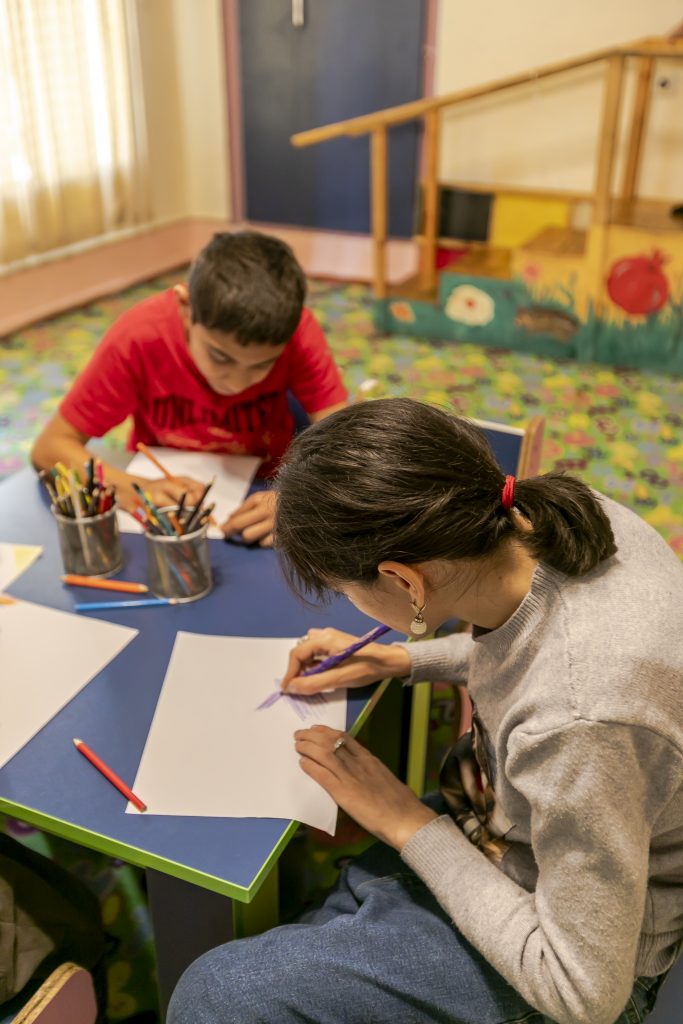
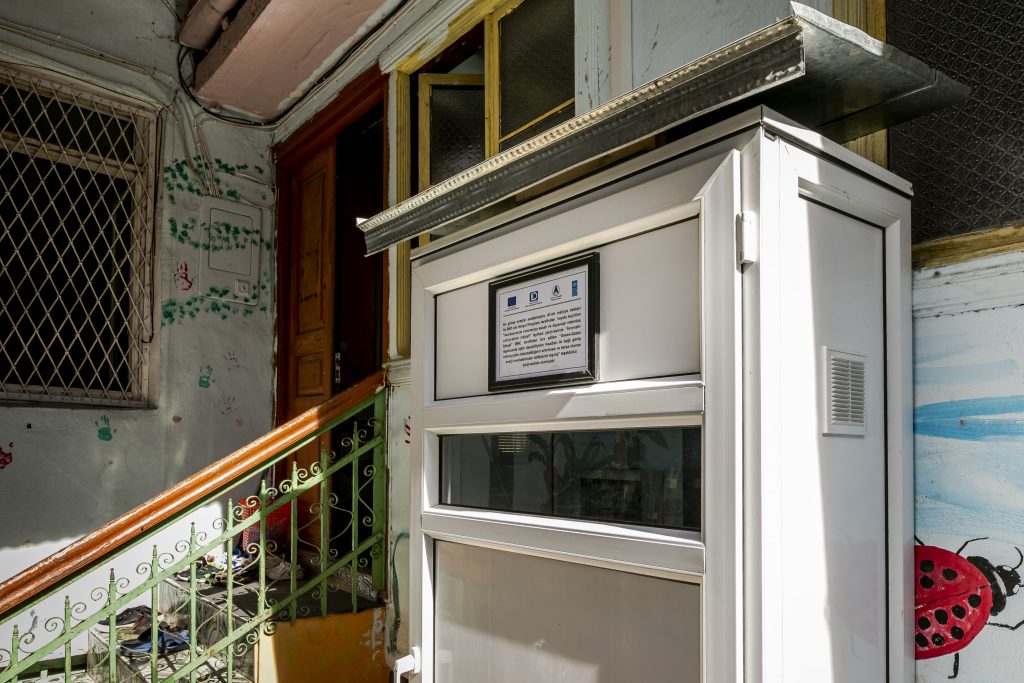
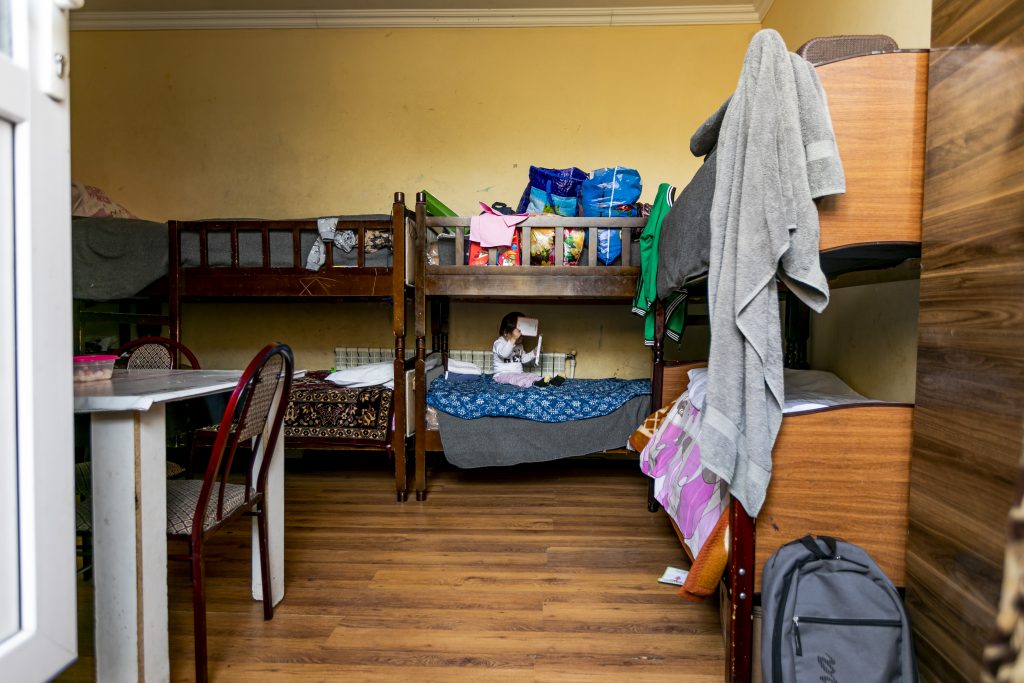
Following the successful experience with the shelter, the Ganja Euro-Atlantic Information Centre established collaboration with one more social institution in Ganja – the Social Rehabilitation Centre for Children with Limited Health Opportunities. Since 2015, the Rehabilitation Centre has been supporting children with disabilities for their full and equal integration in society. Currently, it provides numerous therapy services and activities to more than 40 children from Ganja and the surrounding regions – Samukh, Goygol, Goranboy, Dashkasan and Shamkir. The installed solar energy system ensured the lighting of the building based on 100% green energy. “Within one year, we are able to save 900 kWh of electricity, reducing our bills by 90 manats,” says Rovshan Novruzov, Head of the Rehabilitation Centre. “Continuous and uninterrupted lighting of the premises improves the quality of the rehabilitation process which annually involves over 180 children with disabilities.”
The activities of GEAIC aroused interest among the local population. Thus, with EU funds channeled through the United Nations Development Programme, the NGO organised several information sessions for young people from the city of Ganja, as well as from Goygol and Samukh districts, explaining the effects of climate change and the importance of alternative energy sources. “It was great to see the enthusiasm of the young people!” says the Head of GEAIC. “They asked a lot of questions about what they could do to contribute to climate change mitigation. To me, it was important to see this change in the youth, as they are the ones who will continue our mission.”
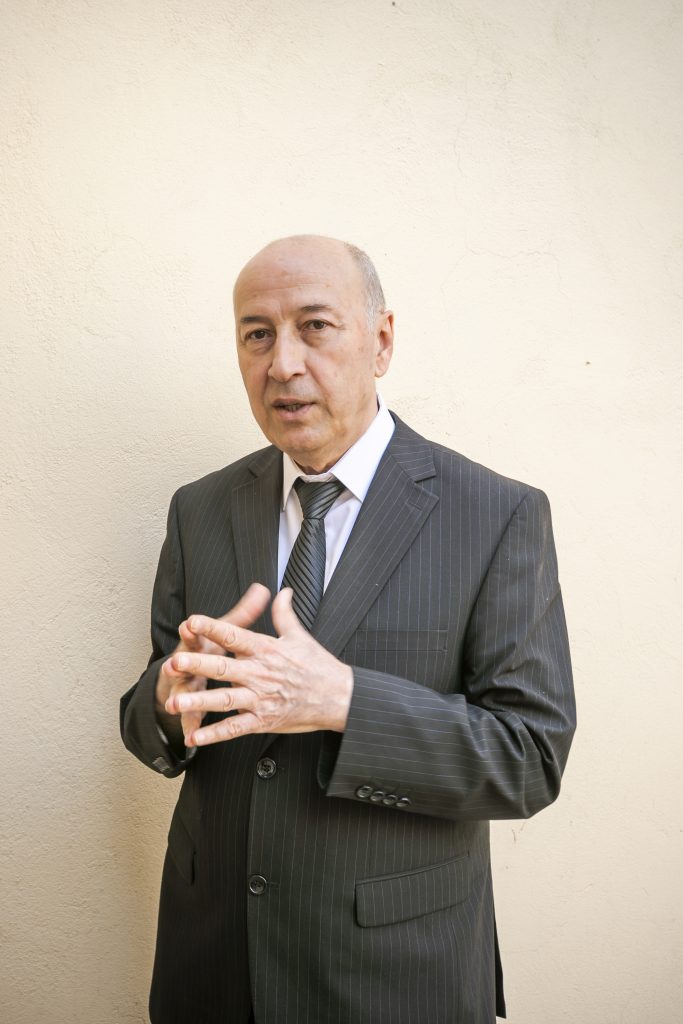
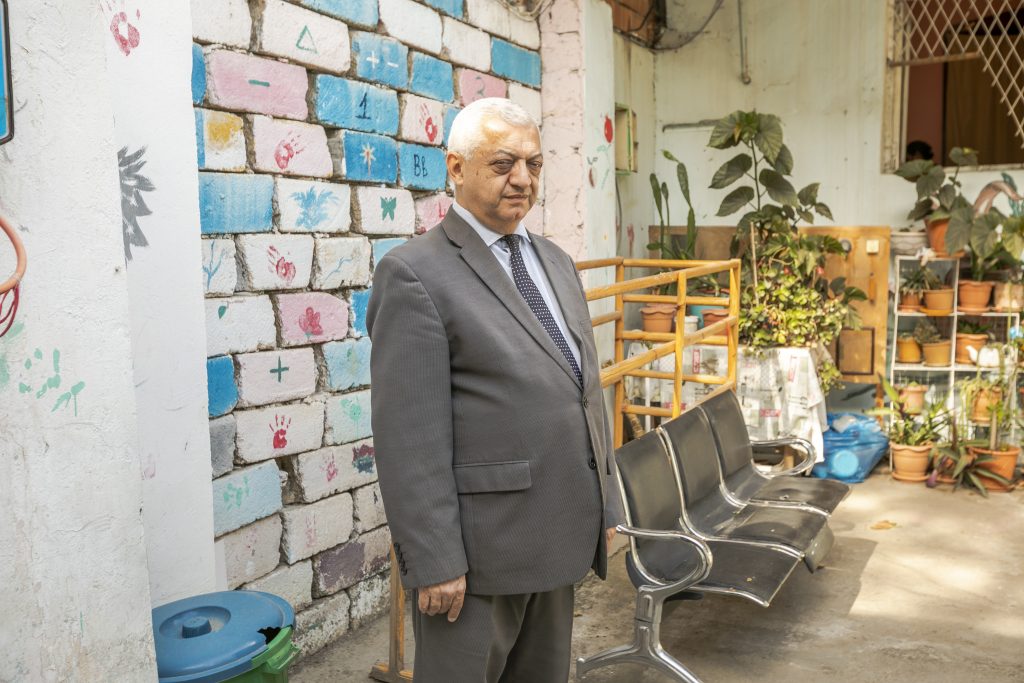
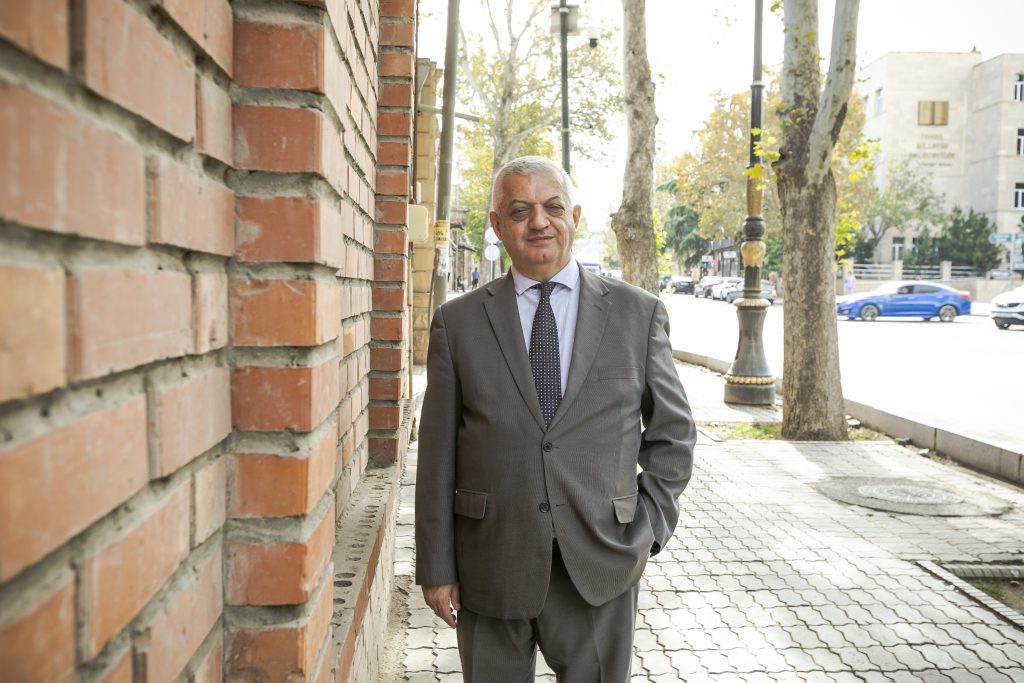
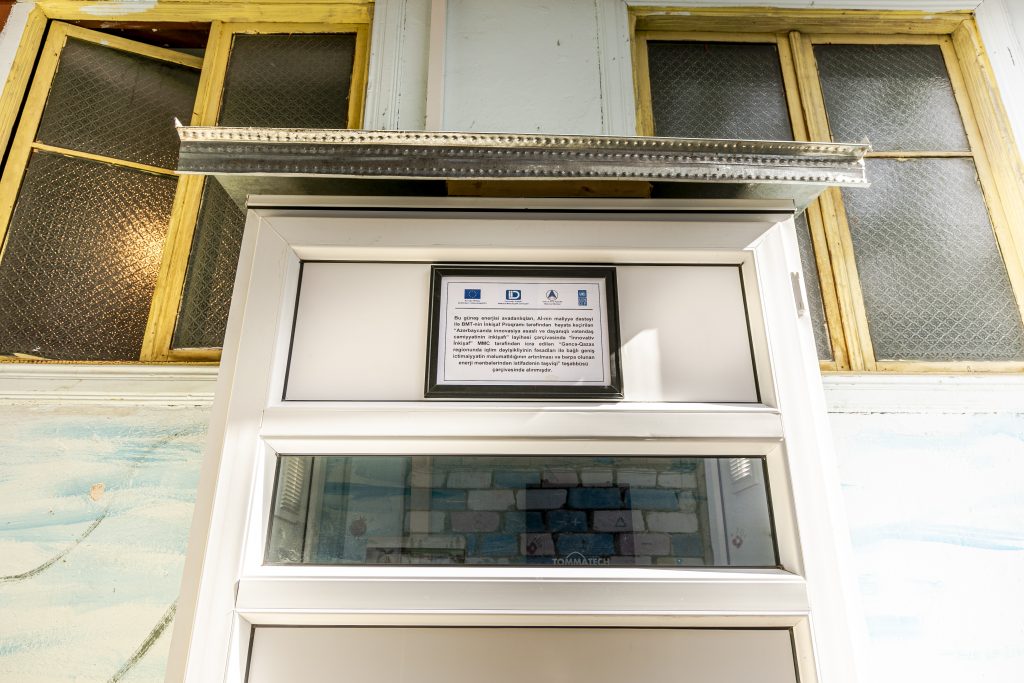
The GEAIC initiative has also attracted many civil society organisations (CSOs) from the Ganja-Gazakh region, keen on a broad and proactive promotion of green energy sources among citizens. Aiming to boost CSO participation in environmental initiatives, GEAIC established the “Green Energy” coalition with eight local organisations, planning to build close collaboration with the State Agency for Renewable Energy Sources within the Ministry of Energy and local governments.
“Azerbaijan is committed to reduce greenhouse gas emissions by 40% by 2050 and to increase the share of renewable energy sources to 30% by 2030. And I’m sure that civil society organisations can make a significant contribution by raising public awareness on climate change and promoting green energy,” outlines Mehman. “The UN Conference of the Parties on Climate Change (COP29), hosted by Azerbaijan in November, is a good opportunity to join our efforts in fulfilling the country’s commitments.”
Authors: Volha Prokharava, Arzu Jafarli
Photos: Melek Mirzayeva